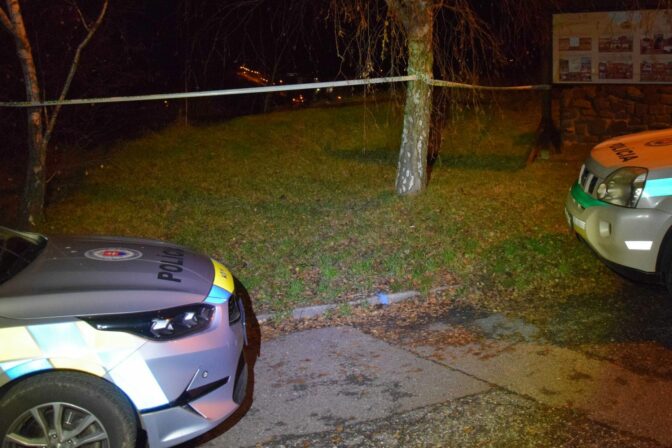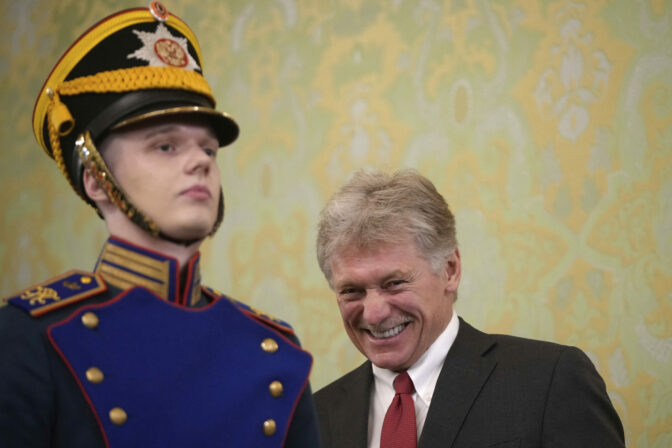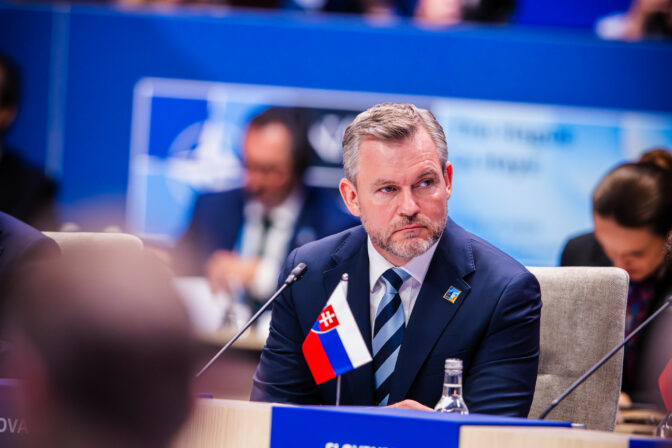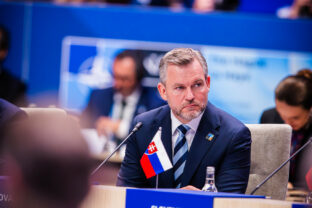BRATISLAVA, April 28, (WEBNOVINY) — President Ivan Gasparovic said at an assessment conference on foreign policy organized by the Slovak Foreign Affairs Ministry on Thursday that last year’s change of the government had no dramatic effects on the country’s foreign policy. He praised that in core issues, reasonable continuity prevails. The head of state perceives his cooperation with the foreign affairs department as problem-free. “I can imagine closer communication also with other constitutional officials and departments with jurisdictions in the area of foreign relations and European affairs. Because the government together with the president and not individual ministries independently form the foreign policy. Maybe we would avoid in this way such a faux pas as questioning the Slovak mission in Cyprus. I am ready for closer cooperation on our foreign policy,” said the head of state in his address.
The president was critical about Slovakia’s failure to join solidarity of eurozone members in seeking solutions to Greece’s public debt. Only Slovakia failed to take part in the finals of the hectic efforts to save the Greek economy citing moral hazard and its domestic political commitment and forgetting about its obligations ensuing from membership in the euro club.
Gasparovic criticized that none of the controversial issues between Slovakia and Hungary was resolved under the new leadership of the foreign department though he admits that the political dialogue and bilateral cooperation continue and the atmosphere in mutual ties has modestly calmed down. He underscored that a few days ago, the Hungarian president signed the new Constitution of Hungary, whose spirit and some stipulations indicate that Hungary has focused exclusively on its own national policy and turns a deaf ear to reservations and concerns over extraterritorial effects of the Hungarian basic law.
The president also urged changes in Slovakia’s attitude towards its internal commitments within NATO, which Slovakia’s allies do not understand. He does not like it that there are still new tasks mounting for the army but defense expenditures continue shrinking. He fears that Slovakia’s trustworthiness an ally could be harmed.
Prime Minister Iveta Radicova said that the year that passed was very demanding for the European foreign policy not talking about the Slovak foreign policy as “we all have faced and face overcoming the global economic crisis in the long run, lengthy financial crisis and especially the debt crisis. “Without openly giving true names to the reasons, we cannot apply the correct cure,” she said.
Unlike President Gasparovic who criticized Slovakia’s decision to not join the bailout of Greece, the prime minister perceives this step positively. “Neither pressure, nor chaos and stress are sufficient reasons to adopt decisions, which would eventually not bring desired effects,“ said Radicova. She underscored that the Slovak Republic does not feel any satisfaction, but it is in its interest to find effective tools of assistance.
Radicova sees relations with Hungary as positive in cooperation but as worrying in the field of pillars of democracy having the dual citizenship law and the new constitution of Hungary on her mind. She underscored that Slovakia has no right to intervene in the internal affairs of another country if their laws do not infringe on its sovereignty but it rejects that any norms of another state are applied in Slovakia interfering in our country’s internal affairs. “For the Slovak Republic, human rights, civic principles, tolerance and protection of democracy are basic values of internal foreign policy,“ stated the prime minister.
Slovakia will in no case react to the new Hungarian Constitution with a change to its own constitution, as it would be a sign of weaknesses, said the prime minister. She went on to say that one such reaction — the anti-law to the Hungarian dual citizenship law was not worthwhile for Slovakia. She said that it would make sense to change the constitution only if an internal need for it existed. Currently, she sees no reason that Slovakia reacts as a harebrained rabbit.
Foreign Minister Mikulas Dzurinda said that Hungary made two mistakes: massive granting of is citizenship to people without ties to Hungary and playing with collective rights. He warned that granting citizenship also to people without permanent residence might be very dangerous for a wide area, not only for Slovakia. He underscored that the government will do its utmost that citizens of the Slovak Republic can continue practicing their relationship to their homeland and do not yield to the plague called nationalism.
SITA












